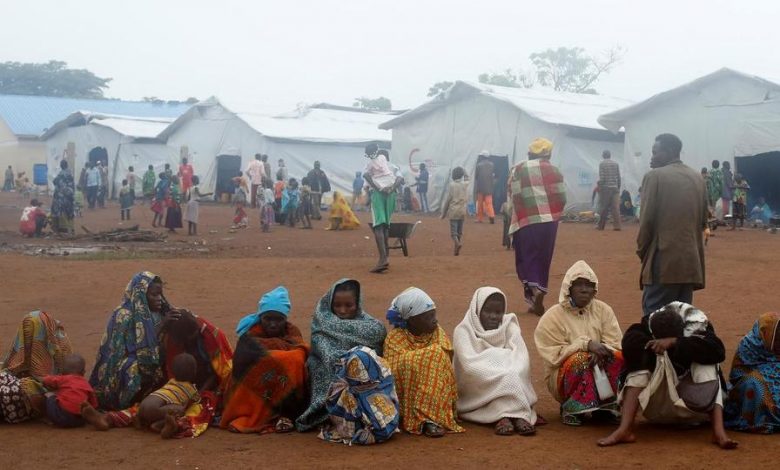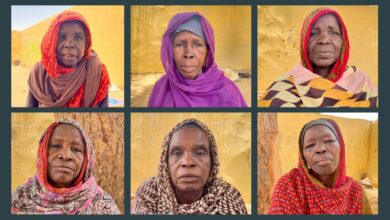DR Congo Violence Displaces More Than One Million People In Six Months

Over one million people have been forced to flee their homes in the violence ravaged eastern Democratic Republic of Congo (DRC) since the start of 2020, the UN said in a statement on Tuesday.
AFP news agency reported that the United Nations High Commissioner for Refugees (UNHCR) voiced alarm at the increasing number of attacks by armed groups on displaced civilians, saying it was “appalled” by the surging violence”.
“In the last eight weeks, UNHCR and its partners have recorded multiple attacks by armed groups on displacement sites and villages,” the agency reported.
The origins of the current violence in the DRC are in the massive refugee crisis and spillover from the 1994 genocide in Rwanda.
After Hutu genociders fled to eastern DRC and formed armed groups, opposing Tutsi and other opportunistic rebel groups arose. The Congolese government was unable to control and defeat the various armed groups, some of which directly threatened populations in neighboring countries, and war eventually broke out.
From 1998 to 2003, government forces supported by Angola, Namibia, and Zimbabwe fought rebels backed by Rwanda and Uganda in what is known as the Second Congo War. While estimates vary greatly, the death toll may have reached over three million people.
Despite a peace deal in 2002 and the formation of a transitional government in 2003, ongoing violence perpetrated by armed groups against civilians in the eastern region has continued, largely due to poor governance, weak institutions and rampant corruption.
UNHCR said the attacks were mainly in Djugu Territory in Ituri Province; in Fizi and Mwenga territories in South Kivu Province; and Masisi and Rutshuru Territories in North Kivu Province.
“Violence has displaced more than one million people in the last six months in these areas,” the refugee agency said.
It urged the authorities in the DRC to strengthen police and military presence in the east “to improve the security situation and hold the perpetrators accountable”.
“UNHCR is receiving accounts of the way armed groups are unleashing terror on people as they flee, in displacement sites and hosting areas, and when they attempt to return, including reports of killings and mutilation, sexual violence and looting,” the agency said.
“The displaced population is also subject to reprisal attacks for their perceived support for the army by returning armed groups, once the army completes operations to clear areas and is no longer present.”
The agency said the attacks were worsening an already complex displacement situation in eastern DRC and were piling pressure on the areas hosting internal migrants, which were lacking food, water and healthcare services.
It also said health centres had been attacked, with medicines to treat people potentially exposed to HIV being looted.
The DRC has one of the highest rates of internal displacement in the world, according to the UN.
Over five million people within the country’s borders have been uprooted by insecurity, while nearly a million more have sought safety in neighbouring countries as refugees.
The UNHCR said those uprooted were overwhelmingly women and children and it was providing shelter, relief items and cash.
The agency appealed for further funding, saying it had only received 21 per cent of the 168 million dollars (149.59 million euros) it needed for its DRC operations this year.
It was the theatre of two major wars, which ran from 1996-1997 and from 1998-2003, the second of which eventually involved nine countries and two dozen armed groups.
AFP news agency reported that millions died from the fighting, disease or malnutrition and violence and volatility remained acute today.
North Kivu in particular has suffered at the hands of militia groups, especially the Allied Democratic Forces, a mainly Muslim movement that originated in neighbouring Uganda in the 1990s.
Ethnic violence in Ituri involving the Lendu and Hema communities has meanwhile claimed nearly 300 lives since March.
HumAngle gathered that since 60 years after independence, traces of the system of exploitation and violence that Leopold II and colonial-era Belgium created still remain in DR Congo. The propensity for violence is inherited.
Support Our Journalism
There are millions of ordinary people affected by conflict in Africa whose stories are missing in the mainstream media. HumAngle is determined to tell those challenging and under-reported stories, hoping that the people impacted by these conflicts will find the safety and security they deserve.
To ensure that we continue to provide public service coverage, we have a small favour to ask you. We want you to be part of our journalistic endeavour by contributing a token to us.
Your donation will further promote a robust, free, and independent media.
Donate Here




